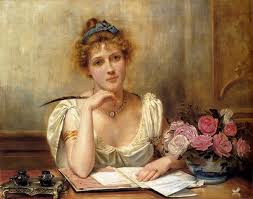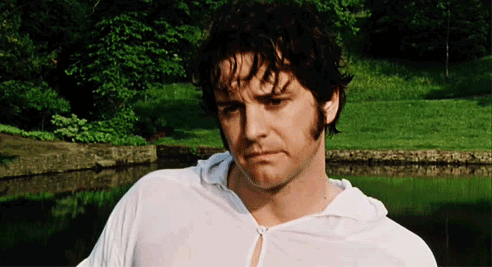
Pride and Prejudice by Jane Austen Narrated by Josephine Bailey
As you know I am trying to read every Austen adaption, that includes the audiobooks.

I spotted this one on Libby and decide to give it a listen.

Unlike the other audiobooks, Josephine Bailey did not do a ton of emoting or change her voices for the different characters; but I still enjoyed her reading of the text. Instead of being caught up in the emotional aspects of the story I actually listened to the text more. Here are a few of my random thoughts while listening.

“How can you be so silly,’ cried her mother, ‘as to think of such a thing, in all this dirt! You will not be fit to be seen when you get there.”
‘I shall be very fit to see Jane—which is all I want.’
‘Is this a hint to me, Lizzy,” said her father, ‘to send for the horses?’
‘No, indeed. I do not wish to avoid the walk.The distance is nothing, when one has a motive; only three miles. I shall be back by dinner.’
Pride and Prejudice
I thought it was interesting they use miles instead of meters. All the British TikTok’s I see they are always making fun of Americans for not being on the metric system. These are the little things that once they enter my mind I have to research and find the answers.
Research says that adopting the metric system was discussed in Parliament as early as 1818, after this book was published, so miles were being used. In fact the adoption of the metric system didn’t begin until 1965. I’m going to remember that the next time I spot a British tiktok making fun of the use of miles.

Elizabeth thinks she is nothing like her mother but truth of the matter is, Elizabeth is a bit of a gossip. She shares she story of her being slighted with multiple people, when she reads her book at Netherfield she makes sure to be by Caroline and Darcy so she can eavesdrop on their conversation, and she definitely over-shared with Wickham as she just met him. I think it goes to show you that we are often more like our parents then we realize.

Why did Elizabeth find it weird for Mr. Collins to apologize for the entail?
“He must be an oddity, I think,’ said she [Elizabeth Bennet]. ‘I cannot make him out. There is something very pompous in his style. And what can he mean by apologizing for being next in the entail? We cannot suppose he would help it, if he could. Can he be a sensible man, sir?”
Pride and Prejudice
Yes it’s over the top and unnecessary, but I think he was just trying to be polite and mend the broken family fences; apologizing for the family’s loss, even though he knows this is something that is out of his control. I mean Matthew felt sorry about it in Downton Abbey as he knew it meant the Crawley ladies would lose everything. The letter was a little much, but at least he’s trying. He could be like Sayre in Duty and Desire and plan to just kick them to the curb after their father passes.

When Wickham was trying to turn Elizabeth, and therefore the village, against Darcy he made one mistake as he does not know Mr. Bingley,
“After many pauses and many trials of other subjects, Elizabeth could not help reverting once more to the first, and saying,—
‘I am astonished at his intimacy with Mr. Bingley. How can Mr. Bingley, who seems good-humour itself, and is, I really believe, truly amiable, be in friendship with such a man? How can they suit each other? Do you know Mr. Bingley?’
‘Not at all.’
‘He is a sweet-tempered, amiable, charming man. He cannot know what Mr. Darcy is.’
‘Probably not; but Mr. Darcy can please where he chooses. He does not want abilities. He can be a conversible companion if he thinks it worth his while. Among those who are at all his equals in consequence, he is a very different man from what he is to the less prosperous. His pride never deserts him; but with the rich he is liberal-minded, just, sincere, rational, honourable, and, perhaps, agreeable,—allowing something for fortune and figure.’
Pride and Prejudice
Darcy’s friendship with Bingley does not align at all with what Wickham has said about Darcy’s character, as Bingley is not Darcy’s equal. Darcy’s family are from “a noble line; and, on the father’s, from respectable, honourable, and ancient — though untitled — families”; while Bingley is “new money” his father being a wealthy tradesman. However, Elizabeth is too busy disliking Darcy that she fails to notice that.

Elizabeth jumps on Darcy being the one to separate Jane and Bingley but she doesn’t really know for sure. Colonel Fitzwilliam doesn’t even know who the person is and is just supposing
“And remember that I have not much reason for supposing it to be Bingley. What he told me was merely this: that he congratulated himself on having lately saved a friend from the inconveniences of a most imprudent marriage, but without mentioning names or any other particulars; and I only suspected it to be Bingley from believing him the kind of young man to get into a scrape of that sort, and from knowing them to have been together the whole of last summer.”
Pride and Prejudice
Colonel Fitzwilliman isn’t sure and she doesn’t know for a fact it’s Bingley. That’s a big assumption to make. She does turn out to be right, but still.

Elizabeth laughing at the stupidity of people being wrong about Darcy really got me this time:
Miss [Jane] Bennet paused a little, and then replied, “Surely there can be no occasion for exposing him [Mr. Wickham] so dreadfully. What is your own opinion?”
“That it ought not to be attempted. Mr. Darcy has not authorized me to make his communication public. On the contrary, every particular relative to his sister was meant to be kept as much as possible to myself; and if I [Elizabeth] endeavour to undeceive people as to the rest of his conduct, who will believe me? The general prejudice against Mr. Darcy is so violent, that it would be the death of half the good people in Meryton, to attempt to place him in an amiable light. I am not equal to it. Wickham will soon be gone; and, therefore, it will not signify to anybody here what he really is. Some time hence it will be all found out, and then we may laugh at their stupidity in not knowing it before. At present I will say nothing about it.”
Laughs their stupidity! That was you two days ago, you were the “stupid” one. I think I’d feel a bit more shame at favoring the rotter for a while longer before I could make jokes about it.

I think Pemberley is such an important place in the novel because even though Elizabeth has read Darcy’s letter, a small part of her still believes the lies Wickham told her; and a large part of her wants to be right about her judgement of Darcy. It is not until she meets his housekeeper, sister, sees how he treats her uncle and aunt, etc.
“I say no more than the truth, and what everybody will say that knows him,” replied the other. Elizabeth thought this was going pretty far; and she listened with increasing astonishment as the housekeeper added, “I have never had a cross word from him in my life, and I have known him ever since he was four years old.”
This was praise of all others most extraordinary, most opposite to her ideas. That he was not a good-tempered man had been her firmest opinion. Her keenest attention was awakened: she longed to hear more; and was grateful to her uncle for saying,—
“There are very few people of whom so much can be said. You are lucky in having such a master.”
“Yes, sir, I know I am. If I were to go through the world, I could not meet with a better. But I have always observed, that they who are good-natured when children, are good-natured when they grow up; and he was always the sweetest tempered, most generous-hearted boy in the world.”
Elizabeth almost stared at her. “Can this be Mr. Darcy?” thought she.
The introduction, however, was immediately made; and as she named their relationship to herself, she stole a sly look at him, to see how he bore it; and was not without the expectation of his decamping as fast as he could from such disgraceful companions. That he was surprised by the connection was evident: he sustained it, however, with fortitude: and, so far from going away, turned back with them, and entered into conversation with Mr. Gardiner. Elizabeth could not but be pleased, could not but triumph. It was consoling that he should know she had some relations for whom there was no need to blush. She listened most attentively to all that passed between them, and gloried in every expression, every sentence of her uncle, which marked his intelligence, his taste, or his good manners.
The conversation soon turned upon fishing; and she heard Mr. Darcy invite him, with the greatest civility, to fish there as often as he chose, while he continued in the neighbourhood, offering at the same time to supply him with fishing tackle, and pointing out those parts of the stream where there was usually most sport

Those were just a few random thoughts I had when reading. Do you agree or disagree? Let me know in the comments below.


For more audiobooks, go to Am I the Only One Who Didn’t Enjoy the Book the Jane Austen Society?: Book and Audiobook Read by Richard Armitage Review
For more Pride and Prejudice, go to Duty and Desire
For more posts focusing on the text of Jane Austen, go to The Lost Dreams of Elizabeth Elliot or How Elizabeth Elliot is the “Sad” Version of Emma Woodhouse































